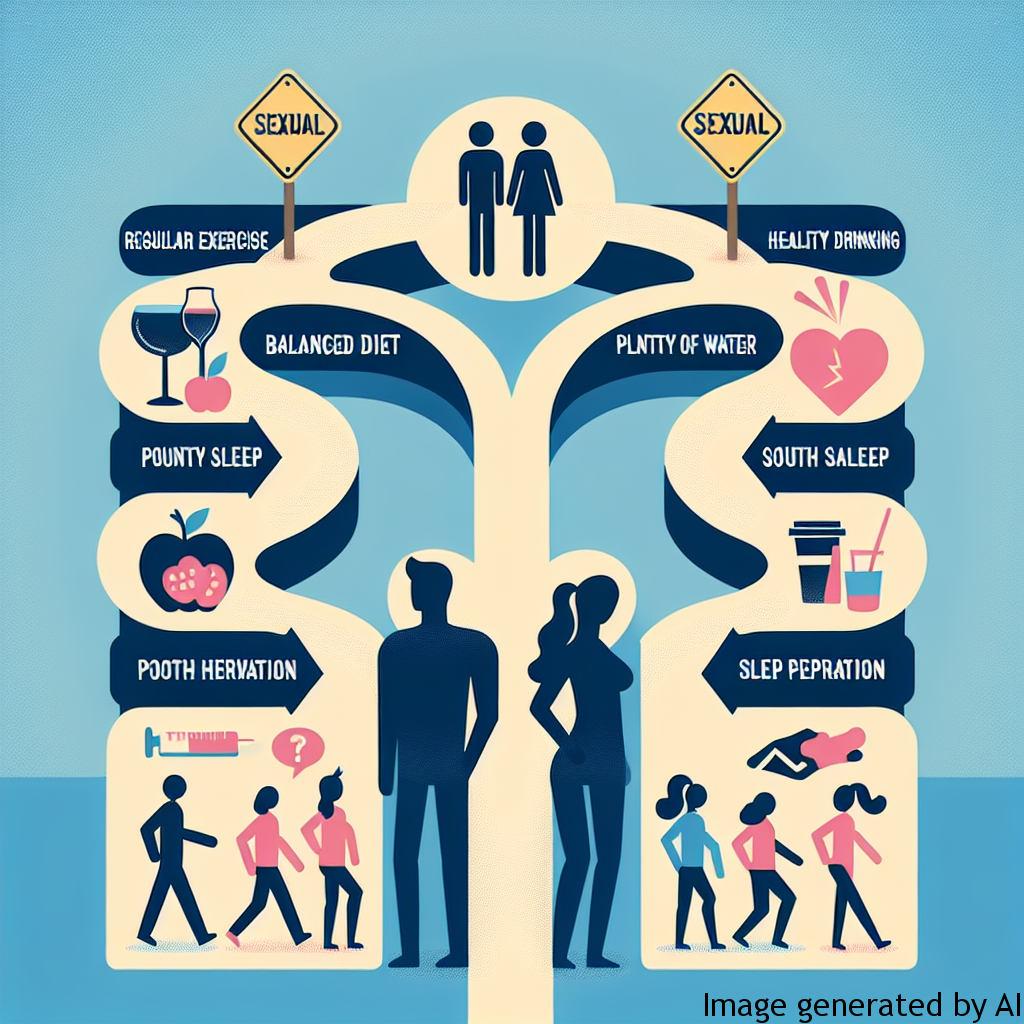Introduction
The essence of sexual health goes beyond just the prevention of diseases or disorders. It also includes the understanding and respect for bodily integrity, sexual orientation, eroticism, and mutual consent. Several elements affect sexual health, one the most predominant being lifestyle. This article aims to explore how lifestyle and gender roles could impact sexual health, primarily focusing on men.
Description of Gender Expectations and Their Impact on Men’s Psychological Health
Society has, over the years, upheld certain traditional gender roles and expectations that influence the way men perceive and express their feelings, emotions, and overall mental health. Narratives such as “men don’t cry” have kept men shying away from expressing their vulnerabilities, which can lead to adverse effects on their mental and subsequently sexual health.
The Pressure of Masculinity
Traditional ideals and stereotypes about masculinity often dictate that men should be strong, unemotional, and always in control. These stereotypes can lead to an increase in stress levels and make men hesitant to seek help for health issues, thereby affecting their sexual health.
Influence on Sexual Performance and Satisfaction
The social pressure to appear manly often steers men to have high sexual expectations of themselves. The fear of underperforming or not fulfilling these expectations can lead to performance anxiety and sexual dissatisfaction, directly influencing their sexual health.
Examples of How Gender Roles Can Influence Men’s Lives
Gender roles can contribute to unhealthy lifestyle choices among men. Men stereotypically engage in riskier actions and unhealthy habits such as excessive drinking or smoking, which can adversely affect their sexual health. There is also a societal expectation for men to be the ‘breadwinners.’ This can lead to work-related stress, less time for self-care, and impaired sexual health.
Tips for Improving Psychological Health Considering Gender Roles
The first step towards a healthier lifestyle, both mentally and sexually, is to challenge traditional gender roles and stereotypes. Men should be encouraged to express their feelings and seek help when faced with psychological distress. Regular exercise, a balanced diet, adequate rest, and avoiding harmful substances can significantly improve both mental and sexual health. Additionally, open communication about sexual health with partners and professionals can help alleviate any anxieties or misconceptions.
Conclusion
In conclusion, lifestyle plays a significant role in influencing sexual health. By challenging societal gender expectations, promoting healthier habits and improving mental well-being, men can enhance their sexual health significantly. It is crucial to talk openly about these issues to break the stigma and create a more understanding and inclusive society.

